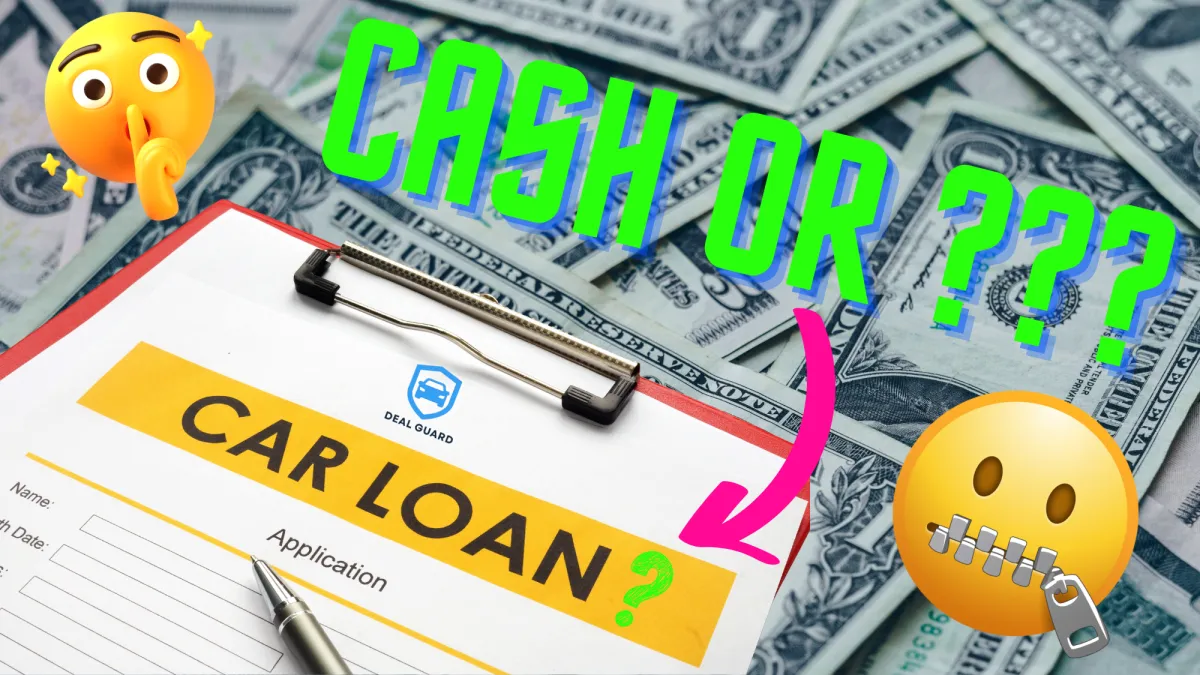
Tip #3 - Never Say How You’re Paying At A dealership
Tip #3 — Never Say How You’re Paying At A dealership (Yet)
"Telling a dealership you’re paying cash too early is like walking into a casino and yelling, 'I brought $10,000!' Guess what happens next?" - Chase Jordan
One of the biggest mistakes car buyers make — even smart ones — is announcing up front how they plan to pay for the car.
Whether it’s cash, financing through the dealer, or a pre-approved loan from your bank, saying it too early can cost you thousands in countless dealerships.
Sure there's the outlier story out there of dealership giving away great deal and zero finance charges, shoot, i'm doing that right now with my wife's car!
At Deal Guard, your trusted car buying concierge and negotiation consultant, we help you avoid this simple trap that dealerships bank on (literally).
Let’s break it down step by step.
🤫 Why Payment Method Is Strategic Info
You may think being upfront about your payment method builds trust or helps the process move faster.
But for dealerships, that information is leverage — not collaboration.
Here’s what they’re thinking:
If you say cash, they’ll hold back dealer discounts (Different from manufacturer rebates).
If you say financing, they’ll inflate the rate or stretch the term every way they can.
If you say you’re pre-approved, they’ll scramble to beat it with a markup.
This is why we teach every Deal Guard client: stay neutral until the price is locked in.
Simply say, "I'll pay cash but if financing is competitive I'll finance but it's not really my focus right now."
🥸 The Psychology of Deal Structure
Car dealers don’t just sell cars.
They sell:
Financing (with markups)
Add-ons and warranties
Service contracts
Extra miles protection
Protection packages etc etc
The finance office (F&I department) is often the most profitable part of the store.
If they know how you’re paying, they adjust their strategy accordingly.
Example:
You walk in and say, “I’m paying cash.”
They think: "No finance profit? Gotta make it up in price or fees."
Now you’re up against:
No incentive to discount
Potential high doc fees
Expensive add-ons you didn’t ask for
It’s like wearing a t-shirt that says, "Please don’t give me the best deal. Thank you."
⏱ When Should You Reveal How You’re Paying?
Only after you:
Get the out-the-door price (OTD — Tip #1 and first task!)
Finalize the trade-in negotiation (Tip #2)
Review all dealer-installed accessories and fees and say NOOOO to the none sense!
THEN — and only then — you talk about how you plan to pay.
That way, the price of the car has nothing to do with how the dealer profits elsewhere.
🛡 How Deal Guard Handles Payment Conversations
As your car buying consultant, Deal Guard:
Keeps your payment method private while we negotiate
Secures the best price based on the vehicle, not your wallet
Compares finance rates if needed — from dealer vs. outside lender
Flags hidden markups or F&I pressure
We focus on transparency and logic. That way, no matter how you pay, the price stays fair.
💰 Why Paying Cash Isn’t Always Better
Surprise!
Cash buyers often get worse deals than those who finance.
Why?
Dealers make profit on loans, so they’re motivated to discount financed deals
When you say "cash,” the dealer’s profit margin shrinks — so they make up for it somewhere else
Sometimes, financing at a low rate and paying it off quickly saves you more in discounts than going all-cash.
This doesn’t mean cash is bad — it just means how and when you say it matters.
🎯 What to Say Instead
Again, when a dealer asks how you’re paying, smile and say:
“That depends on the total price. Let’s work out the numbers first.”
Or:
“I have options, but I’d like to get the out-the-door price first.”
Short, sweet, and gives you the upper hand.
😎 Final Word from Chase
Don’t give the dealership unnecessary information too early.
Whether you’re paying cash or financing, your payment method should never affect the price of the car.
At GetDealGuard.com, we protect that info until it’s the right time — and only when it helps YOU.
🎯 Thinking about buying?
Let Deal Guard negotiate first. Then we’ll help you decide how to pay.
